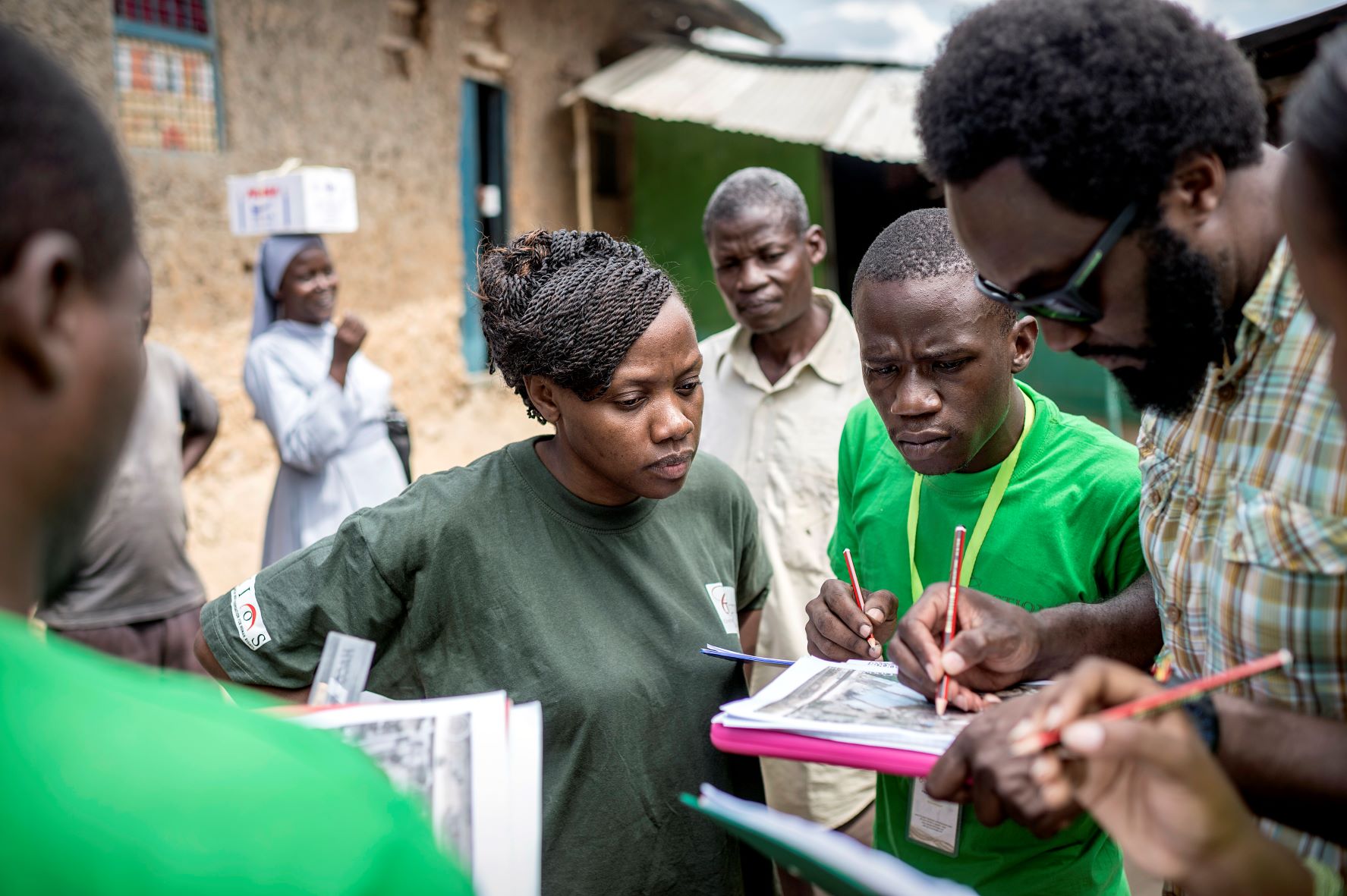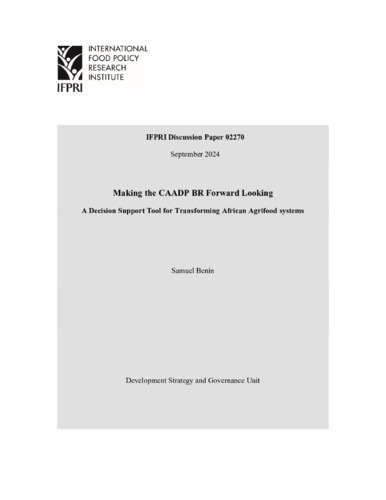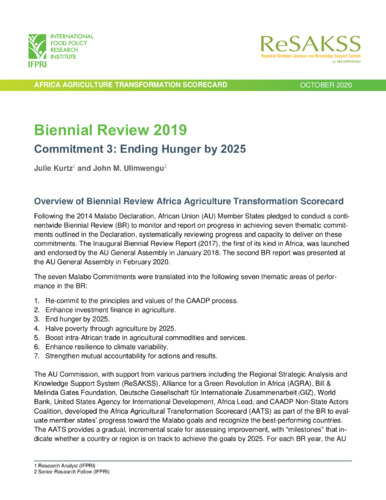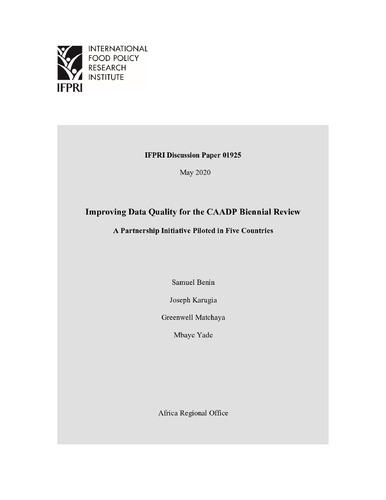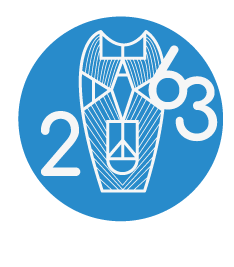The Comprehensive Africa Agricultural Development Programme (CAADP) Biennial Review (BR) is a powerful instrument for triggering policy actions for agricultural transformation in Africa. It is a reporting exercise established by the African Heads of State and Government under the 2014 Malabo Declaration on accelerated agricultural growth and transformation for shared prosperity and improved livelihoods. The CAADP BR report is important for countries in using the findings of the report to adjust implementation of their National Agricultural Investment Plan (NAIP) to achieve better results and outcomes.
Since preparation of the inaugural CAADP BR report that was released in 2018, IFPRI, together with other institutions (e.g., AGRA, Akademiya2063, FAO, Policy LINK, and ReSAKSS) have been providing technical assistance to the African Union Commission (and AUDA-NEPAD and the Regional Economic Communities) to improve the quality of the BR process, data, and reporting. Improving the quality of the BR data, for example, will help increase the reliability of policy implications derived from rigorous analysis of the data, which may in turn encourage policymakers to implement the resulting recommendations to accelerate agricultural transformation and achieve the goals and targets of the Malabo Declaration.
A major factor contributing to the success of the BR is the online portal for submitting data (the eBR), which was introduced during the second round of the BR. The eBR has improved the rate of compiling, checking, processing, and documenting data, as well as the timeliness of producing the Africa Agriculture Transformation Scorecard (AATS) and related results used in preparing the BR report. In the third round, the eBR system was further enhanced to reduce many common data entry errors (for example, unintended zeros, unknown units of measurement, and illogical or implausible values, among others) by placing various restrictions on the fields or cells for data entry.
Still, there are many countries where data quality issues remain severe, which IFPRI together with the other technical partners continue to work with the African Union Commission to resolve.
Activities include:
- Leading or co-leading technical working groups
- Developing and training on indicators, methods, and tools
- Analyzing performance and outlook in achieving the CAADP and Malabo goals and targets
- Contributing to writing the BR reports
- Providing recommendations for improving the process, data, and reporting




